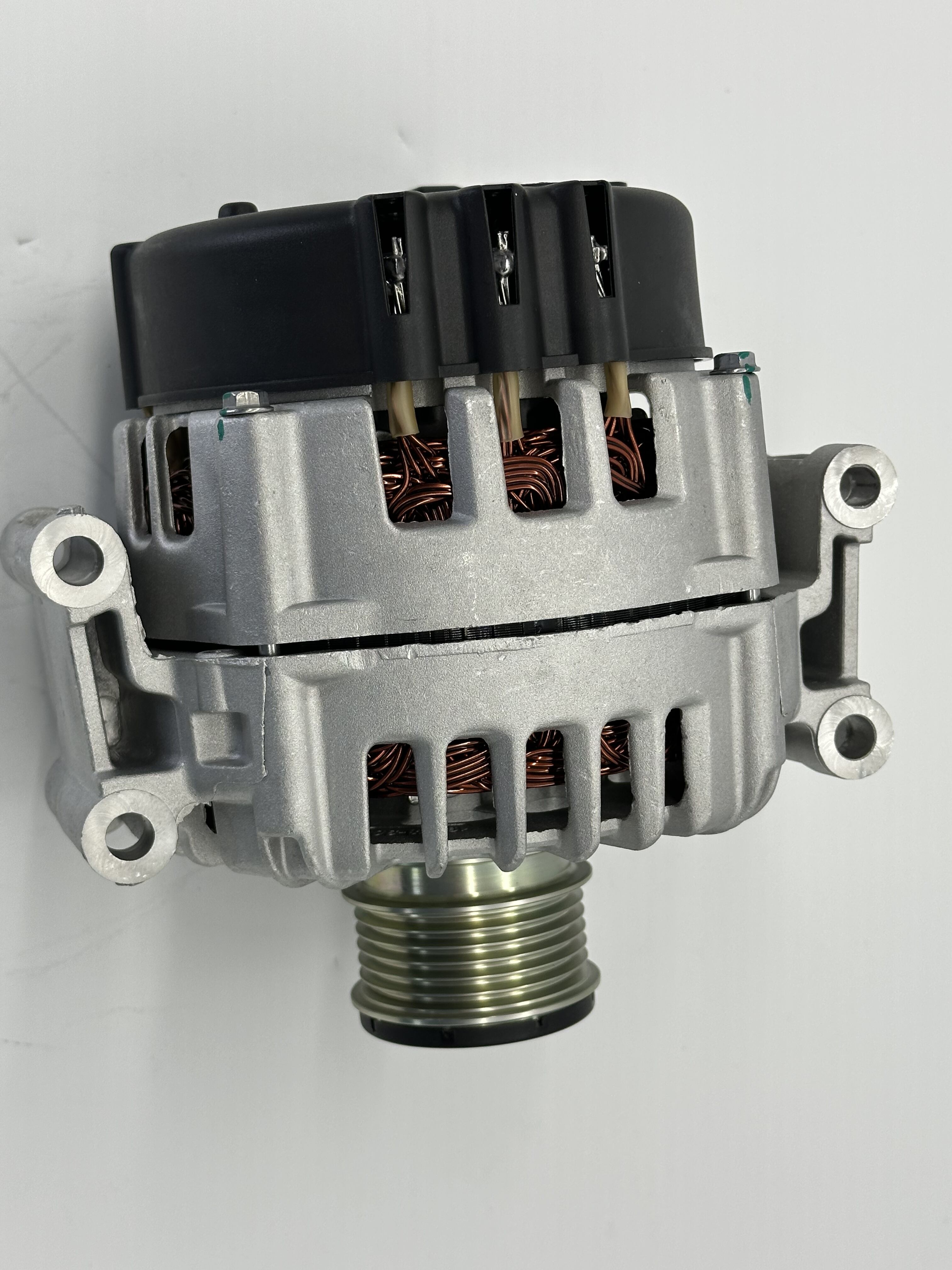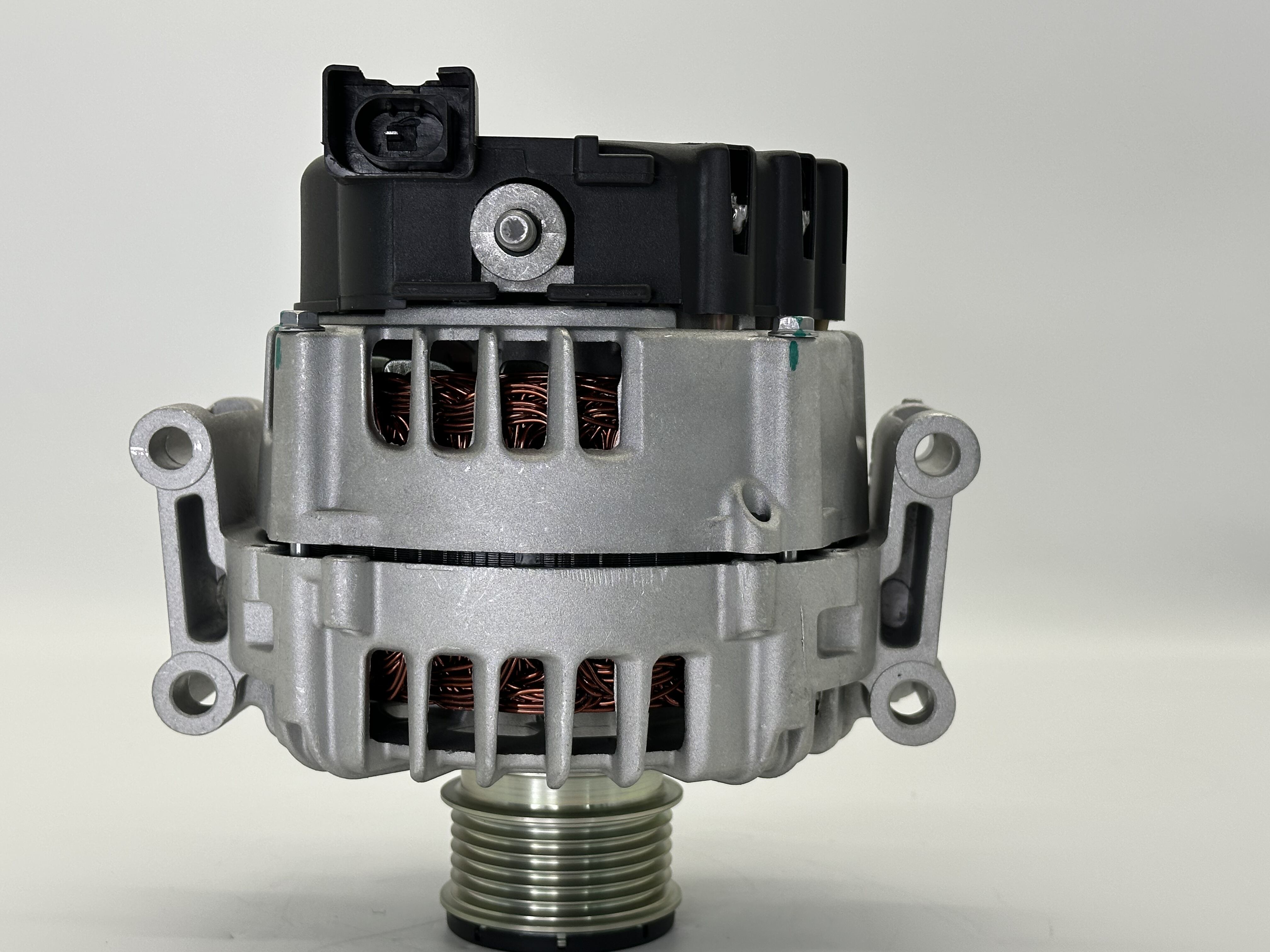Essential Car Alternator Maintenance Guide
Your car's alternator plays a vital role in keeping your vehicle running smoothly, charging the battery and powering electrical components while the engine is running. Proper car alternator maintenance not only extends its lifespan but also prevents unexpected breakdowns and costly repairs. In this comprehensive guide, we'll explore expert techniques and proven strategies to keep your alternator performing optimally for years to come.
Understanding Your Car's Alternator System
Core Components and Their Functions
The alternator system consists of several critical components working in harmony. The rotor and stator generate electrical current, while the voltage regulator ensures stable power output. The drive belt, also known as the serpentine belt, transfers power from the engine to the alternator. Understanding these components helps you identify potential issues before they become serious problems.
Regular car alternator maintenance begins with familiarizing yourself with warning signs of deterioration. The belt should be properly tensioned and free from cracks or wear. The electrical connections should be clean and secure, while the mounting brackets should be tight and rust-free.
Signs of Alternator Issues
Being proactive in identifying alternator problems can save you from unexpected vehicle failures. Common indicators include dimming headlights, particularly when multiple electrical accessories are running, and a battery warning light on your dashboard. Strange noises like whining or grinding during operation often signal bearing problems within the alternator.
Modern vehicles may display more subtle symptoms, such as electrical system inconsistencies or computer system errors. These signs shouldn't be ignored, as they could indicate the need for immediate car alternator maintenance.

Professional Maintenance Techniques
Regular Inspection Protocols
Implementing a structured inspection routine is crucial for alternator longevity. Start by examining the drive belt for proper tension and wear patterns. Check all electrical connections for corrosion or looseness, and ensure the alternator mounting bolts are tight. These simple checks can prevent major issues and should be performed every 3-6 months.
Testing the alternator's output voltage is another essential maintenance step. A properly functioning alternator should maintain between 13.5 and 14.5 volts while the engine is running. Regular voltage testing helps identify declining performance before complete failure occurs.
Cleaning and Protection Methods
Keeping your alternator clean is vital for optimal performance. Remove any built-up dirt or debris that could affect cooling and operation. Use compressed air to clean the vents and housing, being careful not to damage internal components. Apply dielectric grease to electrical connections to prevent corrosion and ensure good conductivity.
Protection from environmental factors is equally important in car alternator maintenance. Consider installing splash guards in areas where water exposure is common, and address any oil leaks promptly as they can damage the alternator's internal components.
Preventive Maintenance Strategies
Routine Service Schedule
Developing a comprehensive maintenance schedule is key to alternator longevity. Include regular belt inspections, electrical system checks, and cleaning in your routine. Document all maintenance activities and schedule follow-up services based on manufacturer recommendations and driving conditions.
Professional inspections should be performed annually or every 12,000 miles, whichever comes first. This helps catch potential issues early and ensures all components are functioning correctly. Regular maintenance costs are significantly lower than emergency repairs or replacements.
Environmental Protection Measures
Your driving environment greatly affects alternator life expectancy. In dusty or humid conditions, increase the frequency of inspections and cleaning. Use protective covers or shields when parking in extreme weather conditions, and consider upgrading to heavy-duty components if your vehicle regularly operates in harsh environments.
Proper car alternator maintenance includes protecting against temperature extremes. Ensure adequate airflow around the alternator and address any cooling system issues promptly. This is particularly important in high-temperature climates or during extended periods of heavy electrical load.
Advanced Care Techniques
Performance Monitoring
Modern technology offers various tools for monitoring alternator performance. Consider installing an amp gauge or voltmeter to track electrical system health in real-time. These devices can alert you to potential issues before they cause system failure.
Regular diagnostic scanning can reveal early warning signs of alternator stress. Many modern vehicles store performance data that can be analyzed during routine maintenance. This information helps identify patterns and predict potential failures before they occur.
Upgrade Considerations
When replacing components during car alternator maintenance, consider upgrading to higher quality parts. Premium bearings, heavy-duty rectifiers, and high-performance voltage regulators can significantly extend service life. While these upgrades may cost more initially, they often prove more economical over time.
If your vehicle's electrical demands have increased due to aftermarket accessories, upgrading to a higher output alternator might be beneficial. This ensures adequate power supply and prevents overworking the charging system.
Frequently Asked Questions
How often should I perform car alternator maintenance?
Basic inspections should be conducted every 3-6 months, with more comprehensive maintenance performed annually or every 12,000 miles. However, vehicles operating in harsh conditions may require more frequent attention.
What's the average lifespan of a car alternator?
With proper maintenance, a quality alternator typically lasts 7-10 years or about 80,000-150,000 miles. However, this can vary significantly based on driving conditions, electrical system demands, and maintenance practices.
Can I perform alternator maintenance myself?
Basic maintenance tasks like visual inspections and cleaning can be performed by most car owners. However, electrical testing and internal repairs should be handled by qualified professionals to ensure safety and proper diagnosis.
What's the cost of preventive alternator maintenance versus replacement?
Regular maintenance typically costs between $50-150 annually, while alternator replacement can range from $500-1000 or more, depending on the vehicle model and labor rates. This makes preventive maintenance a cost-effective choice for extending alternator life.

